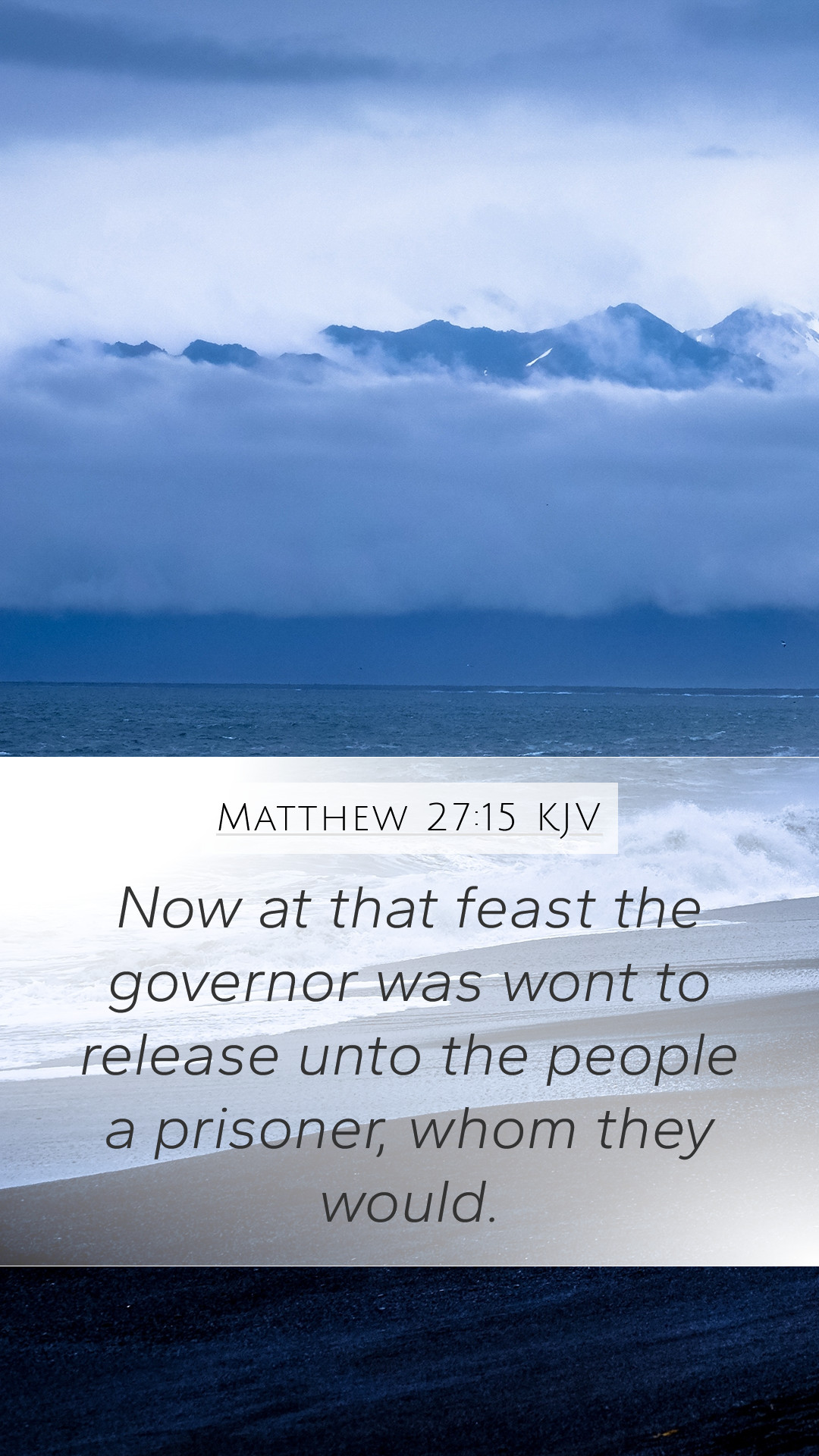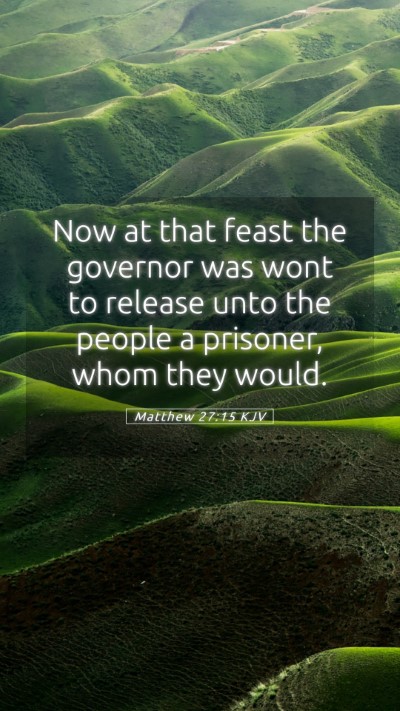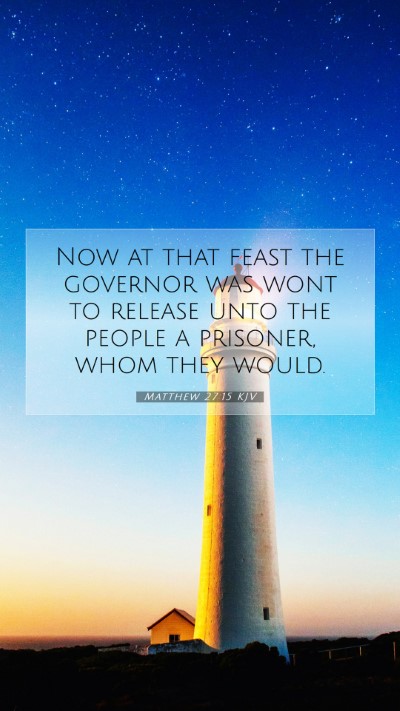Overview of Matthew 27:15
Matthew 27:15 states: "Now at that feast the governor was wont to release unto the people a prisoner, whom they would." This verse sheds light on the practice of releasing a prisoner during the Passover feast, a tradition that reflects the governor's attempt to win favor with the Jewish people.
- Historical Context: This was a common practice during the festival as a gesture of goodwill. It also serves as a backdrop for the choice between the notorious criminal Barabbas and Jesus.
- Significance of the Feasts: The mention of 'the feast' highlights the pivotal role of Passover in Jewish culture, symbolizing liberation and deliverance.
- Political Dynamics: Matthew Henry emphasizes the governor's political maneuvering in releasing a prisoner to maintain social order and appease the crowd.
Interpretational Insights
Several commentaries provide depth to the understanding of this verse:
- Matthew Henry's Commentary: Henry reflects on the custom of prisoner release as a demonstration of mercy and highlights the ultimate choice between the savior and a transgressor.
- Adam Clarke's Commentary: Clarke offers a detailed historical insight, noting that it was a tradition established by Roman authorities to engage with the people sympathetically. He raises questions about the moral implications of the crowd's choice.
- Albert Barnes' Notes: Barnes focuses on the moral choice presented to the people, contrasting the innocent Christ with the guilty Barabbas, representing the decision between good and evil.
Biblical Exegesis
This verse leads to further reflections on the nature of justice and mercy, revealing the crowd's choice in juxtaposition with Christ’s forthcoming sacrifice.
- Choice Representation: The act of choosing between Barabbas and Jesus illustrates the human inclination towards sin over righteousness, a theme prevalent throughout Scripture.
- Foreshadowing of Events: This incident foreshadows the coming events of Jesus’ crucifixion and highlights the rejection of the true savior.
Application for Daily Life
This verse provokes thought about the choices we face daily, encouraging reflection on how we choose between right and wrong, compassion and wrath, light and darkness. Believers are reminded to recognize Jesus as the ultimate liberator, contrasting the choice of Barabbas, who merely represents rebellion and sin.
Cross References
- John 18:39 - "But ye have a custom, that I should release unto you one at the passover: will ye therefore that I release unto you the King of the Jews?"
- Luke 23:18-19 - "And they cried out all at once, saying, Away with this man, and release unto us Barabbas: (Who for a certain sedition made in the city, and for murder, was cast into prison.)"
- Acts 3:14 - "But ye denied the Holy One and the Just, and desired a murderer to be granted unto you;"
Conclusion
Matthew 27:15 serves not only as a narrative moment in the Gospel but as a profound lesson on the nature of choice and the implications of our decisions. It invites readers to engage in Bible study insights and Scripture analysis, deepening their understanding of Scripture while reflecting on their lives and the choices they face. Such examination enriches bible study groups and personal faith journeys.


